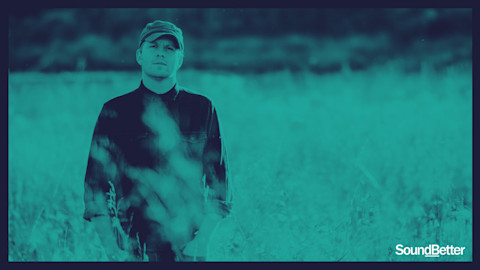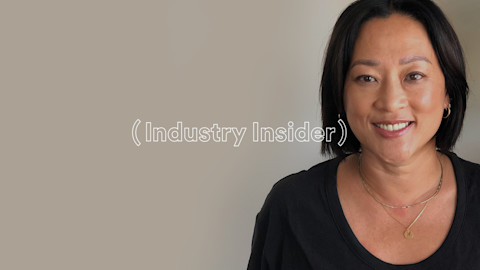Stories
Anthony Green on Getting Sober and Staying Healthy

The punk and hardcore veteran has struggled with addiction since he was 19.
From fronting the experimental hardcore unit Circa Survive and anthemic O.C. punks Saosin to his soul-baring solo work, Anthony Green has established himself as one of the most honest and thoughtful performers in modern rock. He's no less introspective off stage. The happily married father of four is now balancing a thriving career and familial duties, but in order to get here he endured many years struggling with substance abuse and undiagnosed bipolar disorder. In his own words, lightly edited for clarity and concision, he tells the story of how he came to prioritize his health, and shares advice for any musician that thinks they might have a problem with drugs or alcohol.
Disclaimer: The views and opinions expressed in this article are those of the author, and do not reflect the position of Spotify.
The first time I started singing and playing music, I was probably 13. I got a guitar for my birthday and was really obsessed with bands like Nirvana, Green Day, and Metallica and just wanted to kind of emulate that. And then I started bands when I was in high school with anybody I could. I was always very eager to collaborate with people and play music live.
I started drinking and getting fucked up as soon as I could. I remember finishing off the beers at my brother's graduation parties when I was 10, 11 years old. We were living in the suburbs, so it's like you were drinking, you were huffing, you were doing whatever you could just to have fun and keep yourself occupied.
I had three older brothers who were around 10 years older than me. So I was the youngest and I was running wild, and my parents didn't really notice that much. They were kind of just doing their own thing at that point.
I was 19 when I first went to rehab. The first time I was ever sick from not doing drugs was then. [I’d been doing] lots of opiates, pills, heroin, cocaine—just kind of anything. I was doing them so much that my body was getting dependent on it. So you stop for a little while, and then you get sick, and you feel like you need it, and that's pretty much why you go to treatment: because you [keep] doing shit because you feel like you need it. Addiction's a very difficult thing to describe to somebody who has no experience.
Rehab was difficult. It was eye-opening. It was very painful, but it was a necessary pain. You kind of have to go through it.
I had seen my friends who had success touring in punk bands and had snubbed conventional jobs and said "fuck you" to college and just decided that they wanted to travel around in the van and play music, and I thought I was gonna try to do that too.
I had these guys that wanted me to sing for them in Southern California. They were talking to Beau [Burchell] from Saosin before the band started. They were like, "Yeah, I know this one guy who's a singer, but he's just got out of rehab and he's kinda crazy and he kind of sucks—he might quit your band," and [Saosin] were like, "Yeah, he sounds perfect." And so I joined the band for two years, and then I quit.
I took maybe two years off [substances] before I joined Saosin. I got out of rehab and wasn't doing any drugs, and then just started smoking weed and then that kind of just toppled over when I moved to California. I started getting fucked up on anything that was out there.
We didn't communicate; we were young, we were stupid, and I really just felt like I was in an unhealthy situation at the time. Leaving that band was almost like a cry for help because I needed to be around people that would hold me more accountable, which was Circa Survive. But it still took me a number of years before I could really get my shit together.
Colin [Frangicetto], the guitar player for Circa whom I started the band with, was a friend from back in the day, and he knew me well enough to know [I was] out of control. He would call me out and be like, "Dude, you need to chill."
When my first son was born, I knew I had to chill out a little bit, and so I tried to stop drinking. Then every once in a while, I would pop a painkiller, and then that just took off into this thing that was completely unmanageable. In a way, I was like, "You know what? This is keeping me relaxed. I'm doing it so that I can be present as a father." It was the worst. All the pressure of being a young dad and trying to be a musician got to me, and I just did the clichéd thing; I just started doing pills all the time. I was in Philadelphia, so people I was buying pills from were like, "Yo, dude, I get great [heroin]," and so I just started doing that.
When I was about 30, I went to rehab for heroin. I think joining rehab a second time was the worst experience of my life. It was good that it was the worst experience. It should be.
It took me two weeks before I could sleep again, and eat, and then I was in a psychotic state for another two weeks after that. And then slowly—through therapy and a number of other different types of treatment and then one-on-one therapy—I kind of regained my composure and started to work on myself. Exercise and eating right really helped balance my chemical levels that were fucked from heroin.
[It’s been] four years. No heroin, no pills, no alcohol, none of that shit.
I have mental-health issues. I'm bipolar. I deal with that on a day-to-day basis, but I have lots of tools at my disposal and have lots of understanding people in my life. My life these days is way more manageable, way more prolific and creative, and way more connected and in the moment. I would much rather feel the things that I'm feeling now than not feel anything. I always felt like getting fucked up was a hindrance to writing and creativity. It was never something that helped.
I do some natural, homeopathic, organic remedies. And I have a good support system, I do one-on-one therapy, and I exercise daily. And that's my regimen for my bipolar stuff.
rsz avalon 4
I have people around me. We do it right. We take care of ourselves, and we really enjoy being on the road in a way that is real, and not just getting fucked up. We enjoy seeing things and going out eating and experiencing moments together, and it's really fun to travel and meet people. Some of them will have a glass of wine or two and really enjoy it, but not like snort cocaine afterward.
For a long time, I was like, "All right, I need help, but I can do it on my own. I don't need treatment." The reality was, I needed to go to treatment. My best advice would be to talk to a therapist and get into treatment immediately. That's when you can get a good mindframe about you. And try to just find a good support system; tell everybody around you, "Yo, keep me away from this shit."
I wanted to be a hobo that played music on the side of the road. I never imagined myself being a dad, and having all these kids, and doing this shit. It's kind of crazy. There's so many times when my kids helped me make the right decision. They're not the only thing, but there's a lot of times when I'm like, "You know what?" I see them, and they help me realize yeah, this is more important for me to be there for them than it is to just get fucked up or to do something that's just self-serving.
[My wife] helped me out a lot, and she still does. It is still brutally hard to deal with some of the strains that it put on my marriage, on the trust, on a lot of things, but I think that marriage is a difficult thing. I think when you go through tough times with people, it either strengthens the bond or destroys it. For us, it has strengthened it a lot.
[Before,] I couldn't imagine my life without [drugs]. Now, I can't imagine my life was ever like that.
—As told to Michael Tedder
Spotify for Artists helps you to develop the fanbase you need to reach your goals.
video
How Julia Wolf Made It



